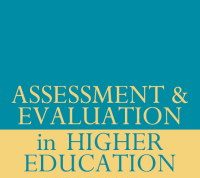[Thanks to Jonas Linderoth for pointing this news story out to us!]
Pasi Sahlberg – the Finnish education policy advisor, researcher and author – was recently in Australia and, as always, had plenty of interesting things to say.
Aside from the usual concerns around PISA and the straight-jacket of standardized international benchmarking, he expressed some troubling thoughts about digital technology and education.
Reflecting on the steadily increasing use of screen-based digital devices in schools around the world, Sahlberg noted what he sees as an alarming polarization of research studies and evaluations in the area of Ed-Tech.
On one hand, he pointed to the burgeoning research literature beginning to highlight detrimental effects of digital technology on learning – particularly in terms of how technology might be altering students’ capacity to process information, think and engage in deep learning.
On the other hand, he noted the growing significance of ‘good news’ studies sponsored by IT industry and other sources who stand to profit from increased technology investment by schools and school systems.
With the stakes being raised ever higher for school systems to ‘perform’ in terms of PISA results, retention, graduation and other key indicators, Sahlberg’s hunch is that we will soon be entering a new ramped-up phase of ‘Ed-Tech’ research.
He speculated on a likely polarization of research on education and technology along similar positions to the ‘scientific’ studies being conducted on lucrative but contentious topics such as smoking, nutrition and climate change.
On one side would be industry-funded studies striving to prove the effectiveness of technology in increasing education outcomes. On the opposing side would be what Sahlberg described as more ‘independent’ studies exploring the ‘harmful’ effects of technology on learning, thinking and information processing.
As Sahlberg was quoted:
“We’re going to see with in the future, a next five years, a war between these kind of research studies, trying to show that doing more screen time [in the classroom] at the time when it’s already controlling the lives of young people doesn’t make any sense; and then the tech companies will say if you build your teaching and learning around the technology you will decrease the dropout rate and increase the graduation rates – we’ re going to see a lot of that in the future.”
So is Ed-Tech poised to become another controversial and highly partisan area of research? Is the IT industry going to hijack the research agenda around technology in schools in a similar fashion to ‘Big Tobacco’, ‘Big Pharma’ and ‘Big Sugar’?
It is tempting to hope not. After all, digital technologies have long been bought and sold in education despite the lack of sustained evidence regarding effectiveness and outcomes. Governments, schools, educators and parents have remained curiously unconcerned with what research evidence actually says. Instead, public opinion on the benefits/harm of technology in education has tended to an evidence-free zone, where many people have been content to act on assumptions and speculation.
Yet Sahlberg is rarely wrong in his pronouncements on education … and if he is correct then these predictions bode ominously for academic research in this area – especially the studies conducted by university-based education researchers such as our own research group.
With Ed-Tech now a multi-billion dollar industry, it is inevitable that private-sector and commercial interests will become increasingly motivated to ‘prove’ the value and worth of their products. As the research activities of Pearson, Microsoft, Facebook et al. have already demonstrated, this form of evidence-building does not require the involvement of academic researchers.
Conversely, most studies of technology’s possible ‘detrimental’ effects are conducted by researchers in the areas of psychology, neurology and other clinical approaches to learning. Again, there is little need for these researchers to engage with educational academic research, even though their research tends to ignore the social and cultural contexts of schools and classrooms.
If Sahlberg’s hunch does come to fruition then there is a real danger that education researchers are going to find themselves squeezed out of the central debates around schools and technology. In short our voices and findings are not going to be seen as worth paying attention to (… if, indeed, they ever were).
So we would do well to pay attention to Sahlberg’s concerns. Even if he proves to be incorrect, his comments provide warning that academic research in the area of Ed-Tech needs to ‘up its game’ in terms of empirical rigor and empirical relevance. Education researchers also need to make sure that they resist falling into the trap of reaching polarized portrayals of digital technology in terms of either being good/bad, beneficial/harmful.
We know that education and technology is a more complex issue that either of Sahlberg’s ‘sides’ would have us believe. The role of education research is to explore these complexities in an objective, open-minded and compelling manner. We need to make a concerted effort to justify the continued value of the research that we do … and make sure that our work offers an unbiased and disinterested alternative to those who think that they already know the answers.







